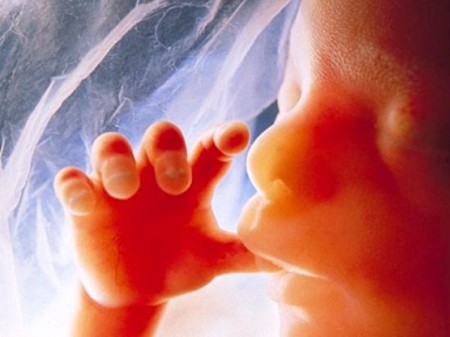SC Supreme Court upholds state's heartbeat abortion ban

The South Carolina Supreme Court has upheld the state’s heartbeat abortion ban, which bans most abortions after a baby’s heartbeat can be detected, which is normally around six weeks into a pregnancy.
In a 4-1 decision released Wednesday, South Carolina’s highest court upheld the Fetal Heartbeat and Protection from Abortion Act, rejecting a challenge from a group of plaintiffs that included Planned Parenthood.
Justice John Kittredge authored the majority opinion, concluding that “a woman's interest in autonomy and privacy does not outweigh the interest of the unborn child to live.”
Kittredge also concluded that “our solemn duty is to uphold the rule of law; we must maintain judicial discipline, refrain from acting as a super-legislature, and respect the plenary authority of the South Carolina General Assembly.”
“As we acknowledged at the outset, many may strongly disagree with the balance struck by the legislature from a policy standpoint; others may strongly agree with the balance struck in the 2023 Act,” wrote Kittredge.
“This Court, however, does not make policy determinations. The legislature makes policy decisions. This is a central feature of separation of powers.”
The majority went on to note that they believe that the state legislature “has a compelling interest in protecting the lives of unborn children” and that they vacated an earlier injunction against the law.
Justice John Few authored a concurring opinion, noting that while he had joined an opinion in January striking down a 2021 version of the heartbeat abortion ban, the newer version, passed earlier this year, was different.
“Ultimately, the General Assembly did not attempt to simply re-enact the same legislation, as Planned Parenthood argues. Rather, it amended the 2021 Act in what appears to be a sincere attempt to comply with the narrowest reading of this Court's [earlier] ruling,” wrote Few.
Few pointed out that the 2023 version allows for emergency contraception and “encourages couples to avoid unwanted pregnancies by providing insured access to contraceptives.”
As a result of the changes, Few wrote that he “cannot say the abortion restrictions included in the 2023 Act are an unreasonable invasion of privacy.”
Chief Justice Donald Beatty authored the lone dissent, arguing that the majority opinion “will surely weigh heavily upon the public and our state's medical professionals, in light of the threat of criminal penalties placed upon practitioners and the serious harm that could occur to women who could be denied reproductive health care during this uncertainty.”
“In my view, because the material terms of the 2023 Act have not changed from the 2021 Act, logic and respect for the doctrine of stare decisis dictate that the 2023 Act should likewise be declared unconstitutional,” he continued.
“The majority and I agree about the separate functions of the three co-equal branches of government and this Court's role in reviewing the matter. Today, however, the majority has allowed the legislature to infringe upon this separation of powers by upholding the resurrection of a ban that this Court has already determined violates our state constitution.”
Last year, the United States Supreme Court ruled 6-3 in Thomas Dobbs, et. al. v. Jackson Women’s Health Organization that abortion was not a constitutional right, reversing its controversial 1973 decision Roe v. Wade.
Since then, several states have moved to ban abortion in most circumstances, including several that have passed laws that prohibit most abortions after a baby's heartbeat has been detected.






















